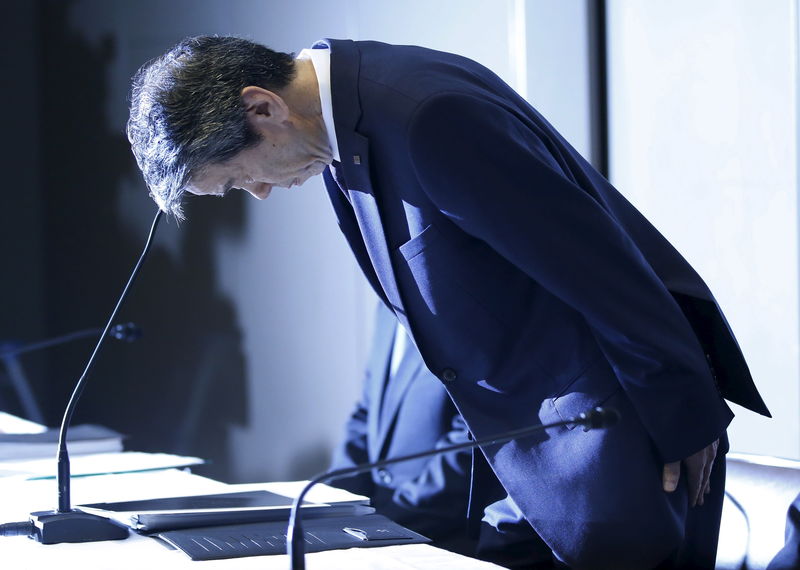Who is Kevin Hassett? Wolfe looks at the Trump ally tipped to become Fed Chair.
By Denny Thomas and Michelle Price
HONG KONG (Reuters) - Japan needs bolder measures such as harsher criminal sanctions for fraud and whistleblower protections to improve corporate transparency and prevent a repeat of the accounting scandal seen at Toshiba Corp, foreign investors and governance experts said.
Toshiba's chief executive Hisao Tanaka and a string of other senior officials resigned on Tuesday after an independent inquiry found he had been aware the company had inflated its profits by $1.2 billion over several years.
The scandal is a major setback for the government of Prime Minister Shinzo Abe, who has made improving corporate governance a central theme in his bid to reinvigorate Japan's economy and entice more foreign capital.
"This is a negative headline in what's been 18 months of positive momentum in Japan," said Singapore-based David Smith, head of corporate governance at Aberdeen Asset Management, which owns Japan stocks. An Aberdeen affiliate had a very small equity holding in Toshiba as of end-May, Reuters data shows.
"This is a black mark for corporate Japan in the face of positive news and strong markets. The government may want to act tough," said Smith, who helps manage about $115 billion in Asia.
Japan's listed companies have long-had tense relations with their foreign shareholders, who have frequently blamed long-term insiders' dominance of corporate boards for low returns and weak oversight.
In response to this criticism, the Abe government last month introduced new rules requiring listed company boards to appoint at least two outside independent directors, but investors said this did not go far enough - Toshiba already had four independent directors as part of its 16-person board.
"The Toshiba scandal further underlines the need for board training as well as a robust whistleblower protection system," said Seth Fischer, chief investment officer at Hong Kong-based hedge fund Oasis Management and a corporate governance activist who successfully pushed for reforms at Nintendo Co Ltd.
"Whistleblowers are ultimately performing a service to the company, its executives and the company's overall mission – which is integrity of financial statements. They need to be rewarded as such," he said.
This week's revelations come four years after a similar scandal in which camera-maker Olympus Corp concealed nearly $1.7 billion in losses from shareholders.
Both scandals also raise questions about the quality of Japan company audits, which rate poorly compared with developed market peers, according to data compiled by Hong Kong-based GMT Research.
"One of the problems is that audit fees are very low in Japan. It's nonsense that auditors, on these fees, are doing any proper work," said Robert Medd, a partner at GMT.
